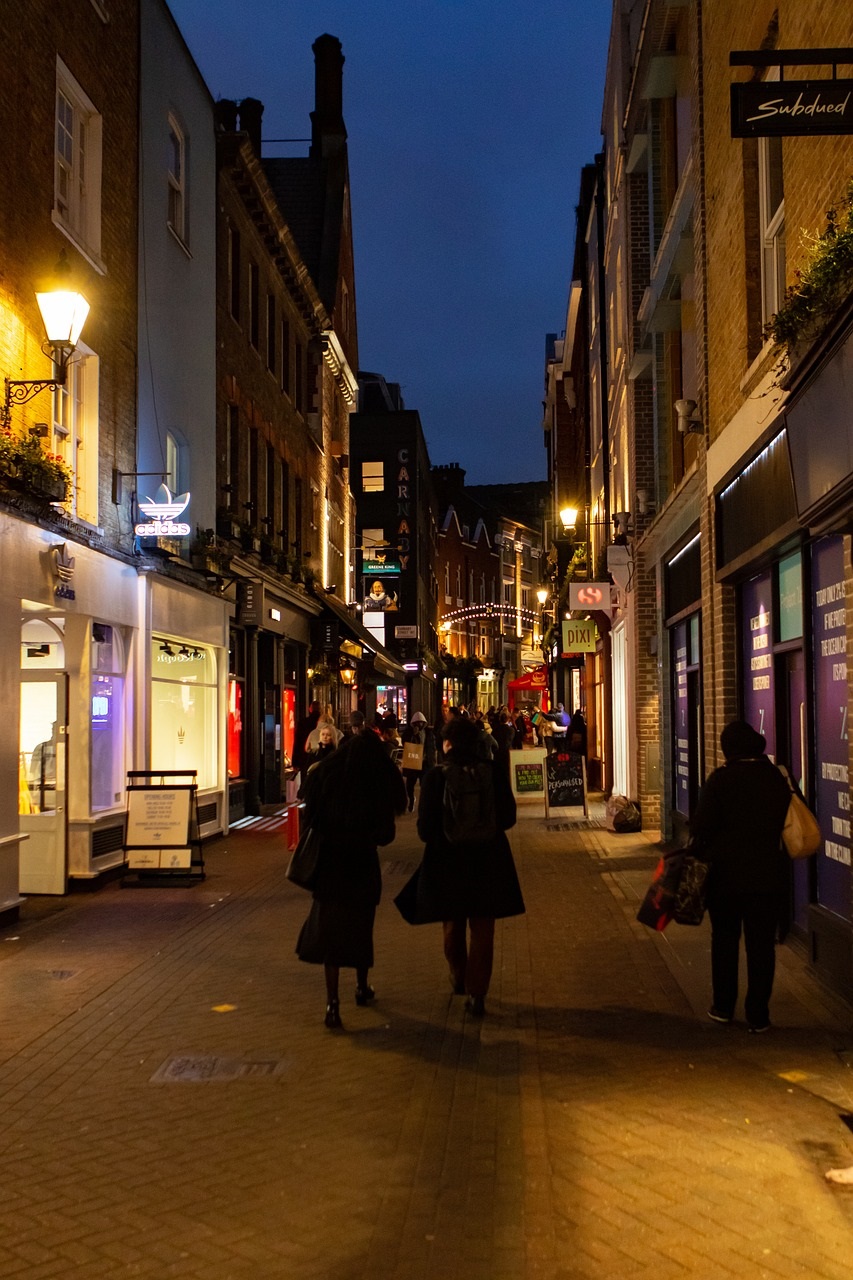They were born in the United Kingdom to parents who were children of those that came in search of a better life overseas. Having lived here their entire lives with better skills, more opportunities, higher levels of economic resources and a detachment from their grandparent’s homeland, can they still be considered foreigners?
 Michelle Gooden-Jones
Michelle Gooden-Jones
First generation migrants tend to feel more at home in the country where they were born. After coming to Britain because of a demand for workers and a chance to better their lives, many aim, or at least wish, to one day return home.
Feeling a pull between their homeland and Britain makes it hard for migrants to adapt to British culture. Being uncertain that they want to assimilate, many form ethnically separate groups or organizations to help and support one another. Their children, who are referred to as second generation migrants, usually want to create a more exciting life for themselves.
Although they are often bilingual, feel close to their country of origin, and were raised by working-class conservative parents who held onto their traditions, they are heavily inspired by British culture.
Through schooling, better language skills, more opportunities and higher levels of interaction with other British-born people, they tend to be torn between their parents’ ideals and their hopes of integrating into the larger British society.
By the time they have given birth to the third generation of migrants, almost all connections to the homeland of their ancestors, other than genotype, is gone. With many third generation migrants never having visited their grandparents’ homeland, and never having learnt their mother tongue, they are certain Britain is their home.
 Fully integrated
Fully integrated
Some have argued that the process of settlement and integration is most difficult for the first generation of migrants, who often spend a lot of time working, trying to survive, and build a foundation for their offspring – leaving them no time for leisure or mastering a new culture.
For the second generation, the process of integration is simpler, especially since they attend the same schools as other British children, which causes them to pick up on the same language, habits and beliefs. Yet they are still heavily influenced by their parent’s homeland and traditional values.
However, third generation migrants are often much more successful at integrating into British society. They are more absorbed into British culture and usually have less of a connection to their grandparents’ home country. Many have completely assimilated, identify as being British, and have much reduced contact with their ancestors’ culture. Their levels of intermarriage with people from different ethnicities are generally higher. They have a reduced interest in the politics of the country their grandparents migrated from, more interest in the politics of Britain, and very little or zero ability to communicate using their predecessors’ native language.
Although their grandparents may have dreamed of one day returning back home, very few third generation migrants desire to return to the country they originate from, and for many, Britain is the only home they know.
In comparison to their grandparents and parents who may not have felt completely at home in Britain, accepted that they were different, and in some cases even expected to be discriminated against, third generation migrants are more likely to stand up to racism, push for equality and fight against discrimination.
 A better life
A better life
Third generation migrants are increasingly moving away from inner city London communities to more affluent suburbs.
Unlike many of their grandparents who migrated to Britain to work in menial jobs, third generation migrants tend to have better economic chances.
They are more driven by rising affluence and aspirations, have better employment prospects, a choice of better schools and more business opportunities. It is easier for the third generation of migrants to emerge as dynamic young professionals, entrepreneurs and ambitious wealth creators.
The gap between their ethnic community and the majority British culture has become much smaller, resulting in less pressure and a choice of how far they choose to affiliate to either country.
However, even in spite of the fact that third generation migrants have more economic chances than their parents and grandparents, research carried out by University College London in 2008 has proven that the employment rate of those from ethnic minorities – with the exception of Indian men – is generally lower than those of White British natives. Research by the university has also found that although third generation migrants have a choice of better schools, White British pupils still outperform ethnic minority pupils who are at least 42 % of a standard deviation lower than those of White British children.
It has also been shown that in spite of the fact that British ethnic minorities are increasingly moving away from London, they are more concentrated in the capital than white natives.
Problems with identity
Despite the fact that many third generation migrants do not see themselves as immigrants of any generation, have never visited the country their grandparents migrated from, and may even be surprised when asked the question “where are you from?”, due to differences in race or appearance, some may not consider them truly British.
 This can cause a complex understanding of the self, often leading them to wonder whether they should feel fully British.
This can cause a complex understanding of the self, often leading them to wonder whether they should feel fully British.
As a result, a romanticised nostalgia for their grandparents’ culture can emerge, generating further confusion surrounding the idea of their forefathers’ homeland.
Due to heightened levels of islamophobia in Britain since the events of 11 September 2001, the London bombings of 7 July 2005, and the recent refugee crisis with a high proportion of asylum seekers coming from Muslim countries, third generation Muslims in the UK are finding it more difficult to fit in with British society.
Academics have observed a change within the British Muslim society, where previous generations pursued more ideals of integration. Now, some of the younger generation are competing with values, and have become more interested in asserting their distinctive character.
For many third generation Muslims, it is likely that Britain’s increasing levels of islamophobia have contributed to a wider questioning of their identity and a lack of self-confidence in who they are.
The national statistics Census in 2001 on young Muslims found that 16 % of females and 13 % of males reported poor health – the highest of all UK religious groups.
While 31 % of young British Muslims were found to leave school with no qualifications compared to 15 % of the total population.
Third generation migrants of white ethnicities who follow Christianity are better able to blend in, while non-whites and non-Christians may still experience racial and religious discrimination, making them more race or religion conscious, more likely to adopt the politics of inclusion, and more determined resist against discrimination.
 However, in spite of some discrimination, technically speaking, the third generation have not migrated, and are thus not migrants.
However, in spite of some discrimination, technically speaking, the third generation have not migrated, and are thus not migrants.
They are simply labelled as such by a phrase that connects them to their ancestral history. In many ways the term is very narrowing, it removes layers from a person, and is not something that has been chosen, but instead ascribed.
Most third generation migrants are fully integrated and the reasoning behind even calling them ‘migrants’ is questionable.
(Photos from Pixabay)












.jpg)












